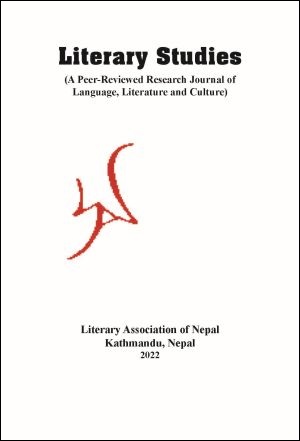Poetic Politics in the Confessional Poetry of Lowell and Plath
DOI:
https://doi.org/10.3126/litstud.v35i01.43683Keywords:
Confessional poetry, cathartic expiation, troubled mind, impeersonality, politics, autobiographical lyricAbstract
This paper critically examines the cultural shifts the confessional poets mainly Robert Lowell and Sylvia Plath brought in post war American poetry. Under the rubric of postwar isolation ongoing developmental practices induced by Fordist culture whatever psychic disturbances the contemporary generations encountered, are reflected in Lowell and Plath’s poetry. Unlike St. Augustine’s sacramental confession, confessional poetry primarily aims at autobiographical self-exploration in essence. Yet, the confessional poetry departs from the life writing with its sharp delving into the poet’s life. The kernel point of this paper is to discuss the way the poets debunk the boundary between private and public domain and the way they prefer to write on socially stigmatized issues like alcoholism, mental illness, adultery, suicidal thought, and depression. By exploring these issues, I argue that confessional poetry penetrates into the poetics of politics under postmodernism which blurs the border line of raw and cooked, decent and profane matters. While examining the selected poems of Lowell and Plath, the cathartic motto of the poets has been highly focused when they express their troubled experiences which were indecent in the past.
Downloads
Downloads
Published
How to Cite
Issue
Section
License
© Literary Association of Nepal (LAN)

